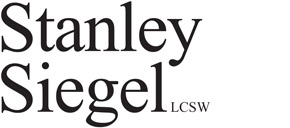Early in my career I immersed myself in the then emerging theories referred to as Family Systems Therapy, with teachings from professionals such as Murray Bowen, Carl Whittaker, Jay Haley and Nathan Ackerman, who themselves had rebelled against the tenants of traditional psychotherapy.
They shared the premise that an individualâs âproblem,â rather than being purely dysfunctional, might actually function to support the stability of a relationship, usually within a family. They gave the problem a positive connotation and treated it as a part of a relationship system, thus moving away from an individual model.
While developing my own ideas I ultimately embraced the ideas of Salvador Minuchin, a pioneer practitioner and originator of a âfamily systemsâ model called Structural Family Therapy. From a family systems perspective no problems were isolated; no behavior existed out of context.
I perceive my role to understand the relationship between or amongst people, to find out how they influence each otherâs actions, serve each otherâs needs, complement each otherâs strengths and then teach these same people what they reveal to the therapist. It was with this mindset that I became Director of Education at the renowned Ackerman Institute for Family Therapy, working alongside senior faculty members Peggy Papp and Olga Silverstein.
I found that âeach individual who approached me with what they perceived were personal emotional problems had relationships in their pasts that had profoundly influenced their behavior and their reactions to their present and future reality. They Vivaxa might be honoring a filial legacy, clinging to a stabilizing tradition, freezing a moment in time, or creating an illusion that transcended time and postponed a departure from a family loyalty.â
I continue: âIf we understood the origins of the conflict and the foundations of the relationships, we would see that the problemswere actually solutions and the failures were achievements. Thus, if patients knew and appreciated the past origins of their reactions to their reality, they could choose new reactions to change the present.
Furthermore, if people in apparently troubled relationships were dissatisfied, they could learn what satisfied them in the first place, what emotional debts they might have incurred to achieve stability, and could identify the possible opportunities for change and acknowledge the risks involved.â
My new book, Your Brain on Sex (Sourcebooks, 2011), combines this process with more than thirty-five years of experience with clients finding new ways to respond to their pasts and shape their presents. I lay out a bold yet simple path for uncovering your true self through sex.
Instead of thinking of sex as a few moments of pleasure, you will learn that sex is a window into your true self, and that it can be an enormously healing act. You will learn how to discover what you want, understand what it means, and use those insights to create powerful change.
Itâs more than just great sex, itâs smart sexâsex that can change your life.




